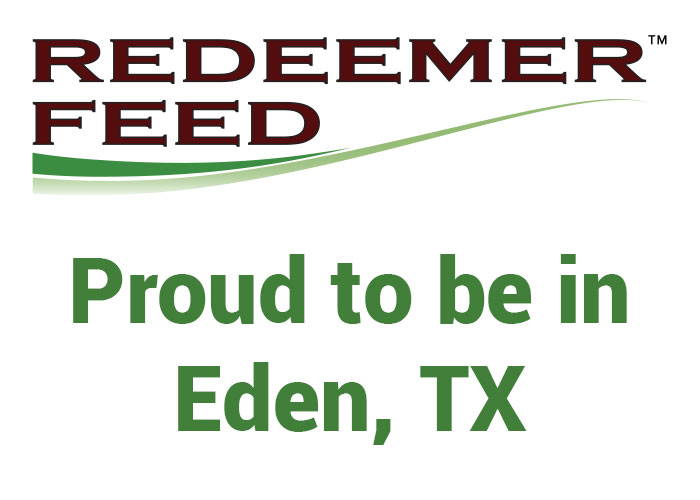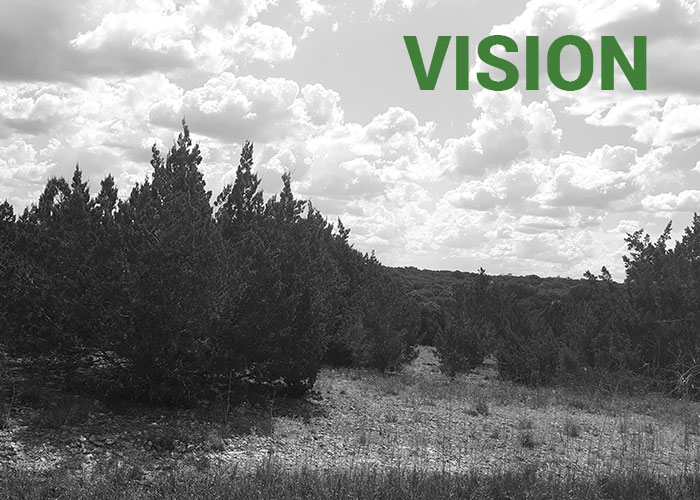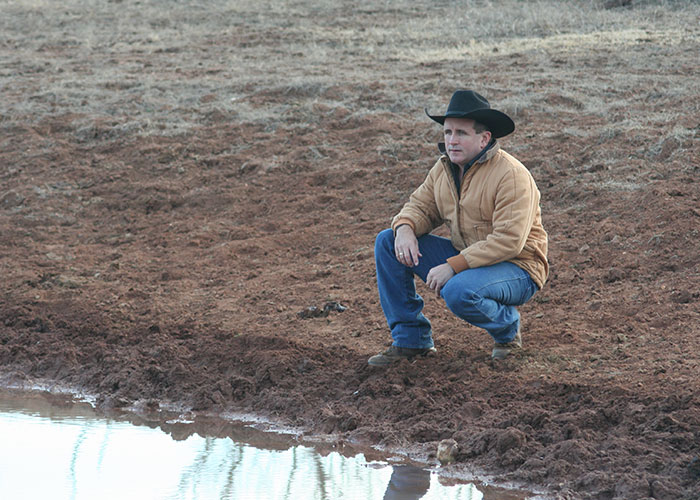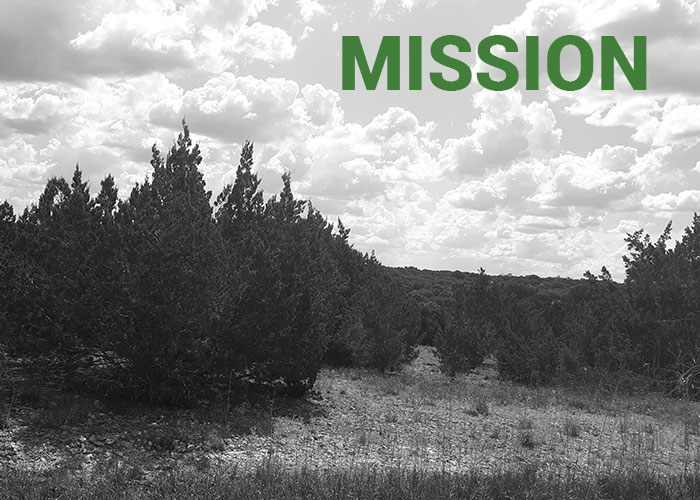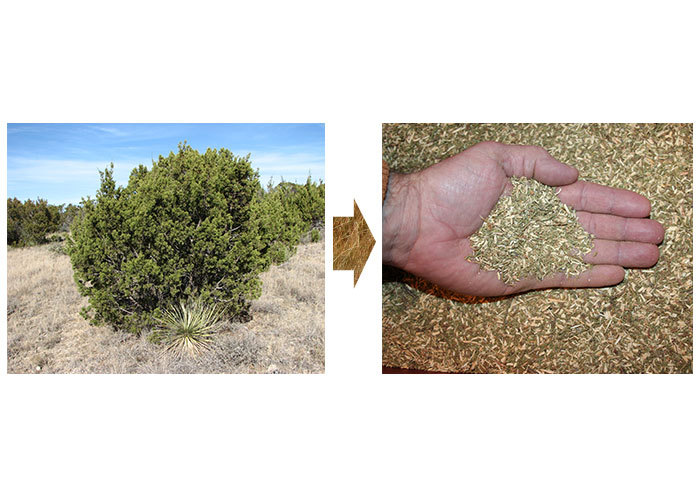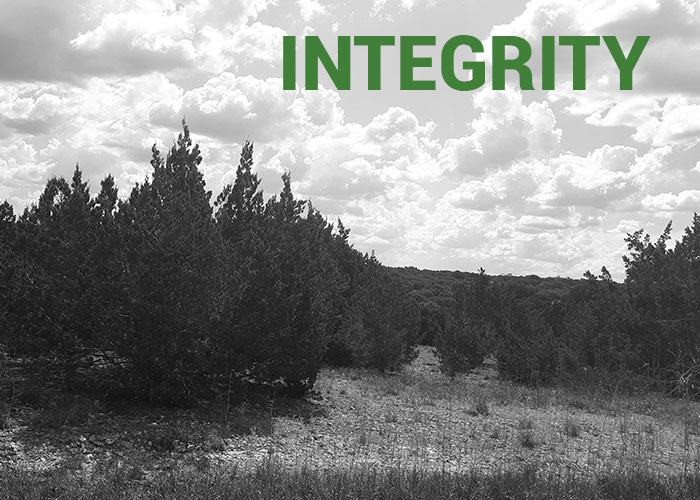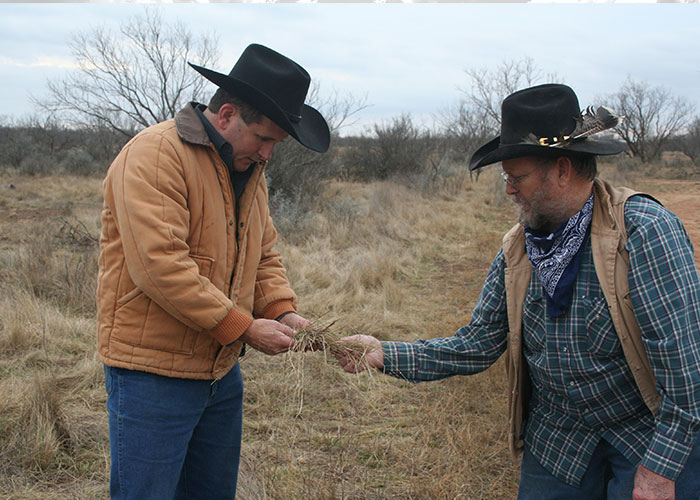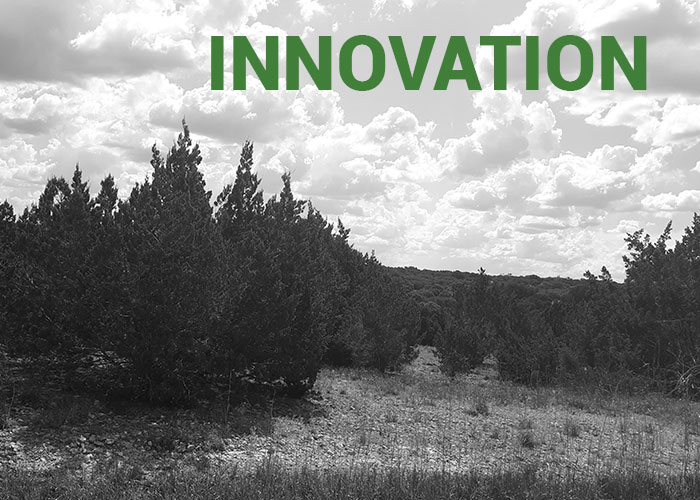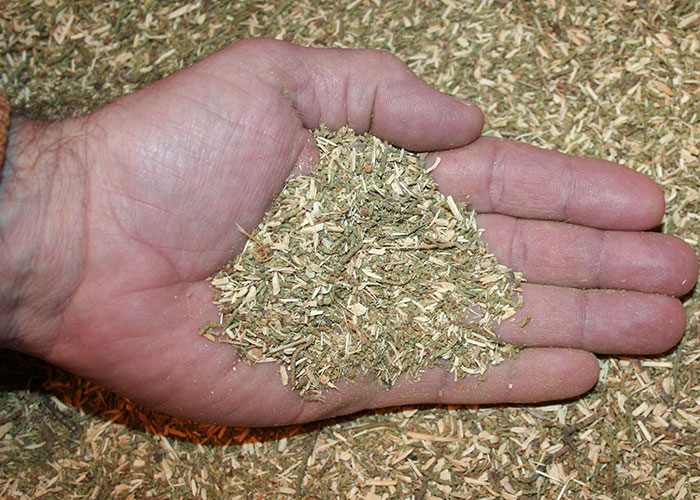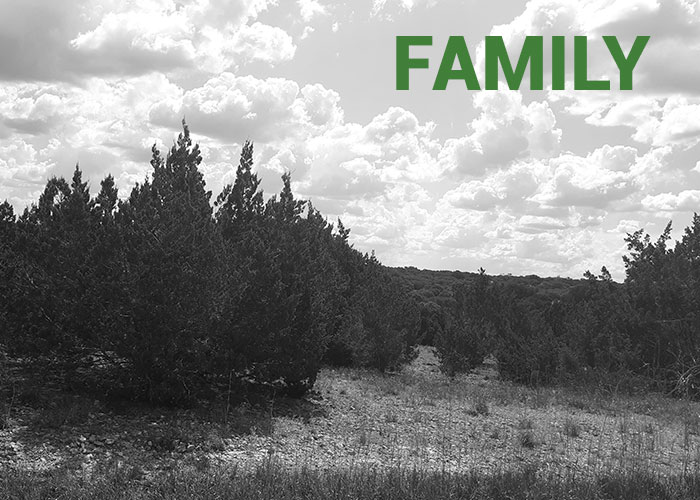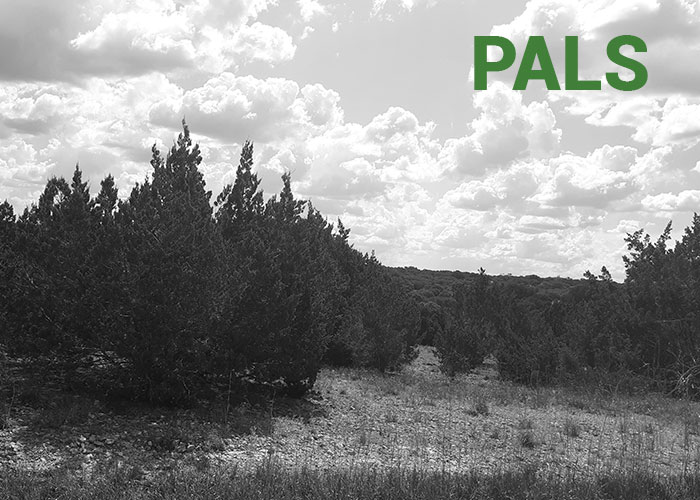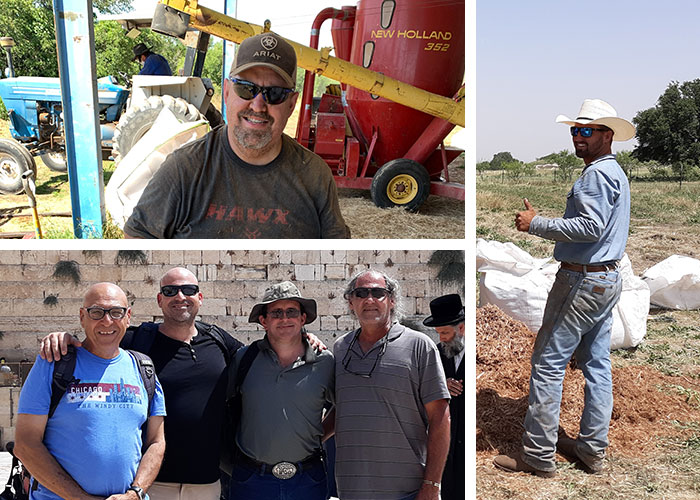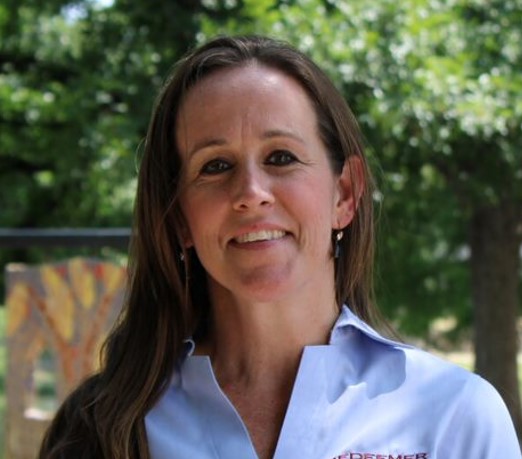About Us
About Our Name
The definition of “Redeem” is to: (1) restore or repair; (2) exchange for something of value; (3) offset the bad effect of; (4) make worthwhile. Removing juniper trees to make our feed products just so happens to concurrently “Redeem” natural resources, available water, forage production, land value, wildlife habitat, and the entire animal feed industry. In addition, we are a Christian-based company. Thus, collectively, this makes “Redeemer” the perfect name (we believe the only name) for our company’s vision and mission.
Vision Statement
We will be the premier integrated business system that converts a natural resource crisis into an economic and sustainable opportunity for the livestock industry.
Mission Statement
To revolutionize the livestock feed industry while at the same time enhance natural resources, rangeland health and sustainability, rural economies, and lives.
Why was Redeemer Feed Created?
1. Natural Resources:
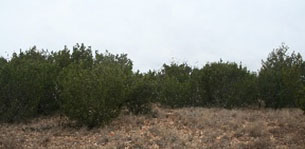
Our founders understand the importance of correctly managing natural resources on the ranch, especially if the goal is sustainable and profitable livestock production. One of the major threats to a rancher’s net profit is encroaching trees such as juniper (AKA, cedar and other names). Juniper reduces the amount of water that reaches the soil surface; potentially reduces the amount of water that reaches aquifers; reduces forage production and plant species diversity; increases the occurrence of wildfires; reduces land value; reduces wildlife habitat quality; and increases pollen associated with allergies and other health issues. Being that juniper management is expensive, its encroachment continues at an alarming rate.
Government programs exist that help supplement the cost of juniper removal but the millions of tax dollars spent by these programs are not significantly eliminating juniper trees on a large-scale. Various products are derived from juniper trees (e.g., fence posts; mulch; terpene oil) but again, they have literally no impact on reducing juniper encroachment.
Our founders knew that, in order to significantly address the natural resource problem associated with juniper encroachment, something different had to happen. Either more tax money had to be spent or a product had to be developed that would use millions of tons of juniper product each year. Our founders knew that coming up with a solution was not going to be an easy task. However, it helped that both were deeply rooted in production agriculture and had advanced degrees (e.g., Ph.D. in Beef Cattle Nutrition) because a solution was discovered. A plan was created that does not rely on tax dollars and creates a product from these trees that can help offset costs associated with removing juniper from thousands of acres of rangelands.
The icing on the cake? Our system is not just unique to Texas and is not restricted to juniper trees. The implications of using this new juniper product, along with similar woody plant products, span throughout the U.S. and other countries.
2. Roughage Feed Ingredients: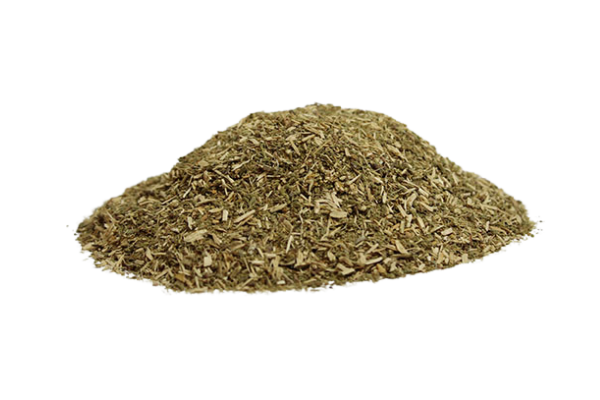
The seasonality, availability, huge price fluctuations, variable quality, and nutrient consistency of livestock roughage feed ingredients (e.g., hay, by-products of cotton and cereal grain production) have always been major challenges for the livestock industry. These roughage ingredients require inputs by man to grow (seed, fertilizer, irrigated water, pesticides, herbicides); generally contain one or more synthetic compounds (pesticides, herbicides, and/or defoliants); expensive to transport when not locally grown; and if labeled “all-natural” or “certified organic” are difficult to procure and are extremely expensive.
So, our founders had a crazy thought, “What if a roughage product could be developed that was not seasonal; did not need to endure huge price fluctuations because it would always be available; did not require any inputs by man to grow; could easily be labeled “all-natural” or “organic;” could be harvested and processed by ranchers on their own property (transportation costs = $0); and when harvested, would enhance natural resources and increase forage production for livestock?” Any rational thinking person would quickly forget about that thought; not Travis. He passionately pursued it for multiple reasons, none less than helping Texas Ranchers finally “Catch a Break” on the ranch and in the feedlot. His dedication to the Livestock Industry and perseverance (AKA: hard-headedness), led him to a solution: Ground Juniper Fiber.
Additionally, we are developing a program where we work directly with hay producers and other feed ingredient suppliers, to where they deliver pre-qualified products to Redeemer Feed or directly to Redeemer Feed clients, which meet our strict quality standards. This “cooperative effort” addresses multiple issues: (1) reduces variability in product quality (especially hay); (2) eliminates the “guesswork” related to product weight and nutrient profile that is entrenched within hay buying decisions because Redeemer Feed’s products are weighed and come with a nutrient profile that is thoroughly explained; (3) reduces the risk of purchasing roughage products that contain non-target forage species (e.g., johnsongrass) and residual herbicides; and (4) eliminates the need for Redeemer Feed clients to have to pre-inspect bulk hay purchases because they will receive online access to photos (representing quality and storage conditions), nutrient profiles, certified growing and harvesting conditions (e.g., irrigated vs. non-irrigated; fertilization rate; stage of maturity when cut; 1st, 2nd, or 3rd cutting, etc.), and Redeemer Feed inspection reports.
3. Ranchers can’t ever “Catch a Break”: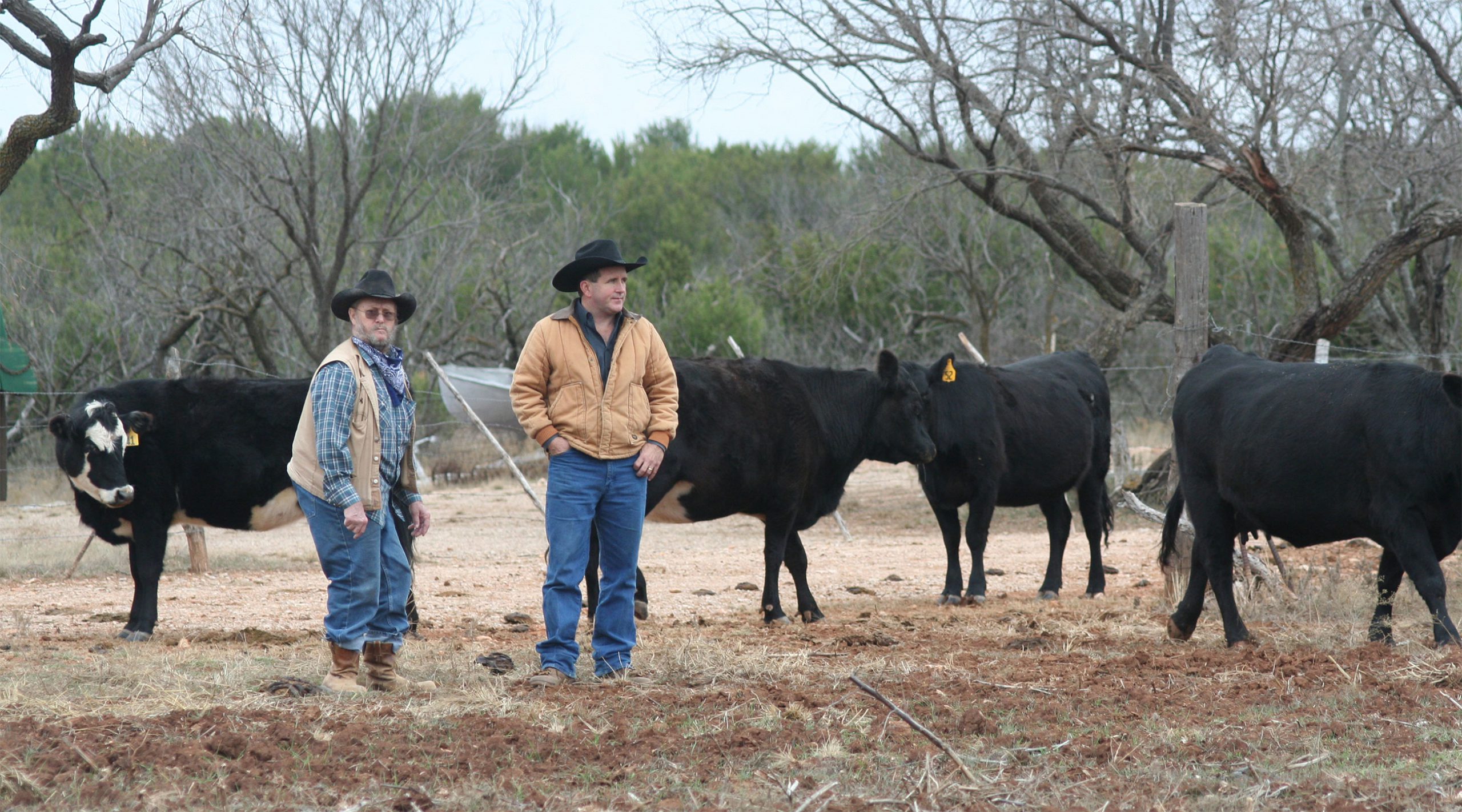
Very rarely do ranchers ever get to experience a decrease in the price of feed, even when individual ingredients justify it.
On the flip-side, they do see their feed bill skyrocket when the cost of individual feed ingredient increase due to drought or other occurrences. No one is really at fault because feed businesses are rightfully profit-driven; they are not charity organizations. However, Redeemer Feed’s unique Ground Juniper products, along with their innovative programs, can help the rancher significantly reduce feed costs.
Even better, using processed juniper trees in livestock diets not only reduces feed costs but gets the nutrients contained within these destructive trees back down into the soil; e.g., an animal consumes juniper feed and “deposits” nutrients back to the soil as feces and urine. As a result, a greater diversity of plants can naturally establish because additional soil nutrients are made available and more rain water reaches the soil surface. The “cyclical” result of removing juniper trees for livestock feed is that forage growth increases, which further reduces livestock supplemental feed costs and contributes to the “Solution” that we deliver.
- To bring the livestock industry a new roughage ingredient (Ground Juniper) that is nutritionally and physically consistent, delivered on time, and available 365 days a year at a competitive price.
- To never deviate from our strict quality assurance standards while harvesting, handling, and processing juniper trees into roughage feed ingredients. The first semi-load juniper fiber a client receives will be just like the 100th.
- That we will never deviate from ensuring a pure Ground Juniper fiber product that falls under the Association of American Feed Control Officials (AAFCO) definition that our founder (Dr. Whitney) constructed and got approved. Our juniper product will not contain other tree species (e.g., brush from land clearing jobs), roots, rocks, dirt, herbicides, or pesticides, and will not be a byproduct of the juniper distillation industry. Any Ground Juniper product that does not meet the AAFCO definition (e.g., derived after material is distilled or contains non-approved tree species) is adulterated and should not be tolerated by the livestock industry or the general public.
- For the better, we will “change everything,” (referring to the supply and demand of traditional roughage feed ingredients) as stated by a large U.S. commodity broker representative.
- Provide feed mills the opportunity to increase feed sales by partnering with Redeemer Feed through licensing agreements (we’ll later have a link to more info. on how they can license our name but leave any link off for now).
- That the removal of encroaching juniper trees will significantly increase throughout Texas and the U.S.
- That our integrated business model will develop into a natural resource and livestock industry success story.
- To be a dependable friend with each of our clients.
- To implement a personalized system for ranchers, designed to help them reduce their feed bill and ultimately, enhance their net profit potential. For example, assist with (a) purchasing required equipment and supplies to mix feed themselves; (b) purchasing a 100% mixed concentrate feed mix from their local feed mill; (c) purchasing Redeemer roughage products and DDGS; and designing targeted supplement mixes and feeding programs.
- To develop mutually beneficial relationships with feed ingredient producers (e.g., hay; crop residues; DDGS) to provide Redeemer Feed with products that meet our strict quality assurance guidelines and be supplied on a consistent basis.
- To be committed to the betterment of our youth: provide training and job opportunities that will enhance their work skills, work ethic, and economic well-being and support youth-related activities.


